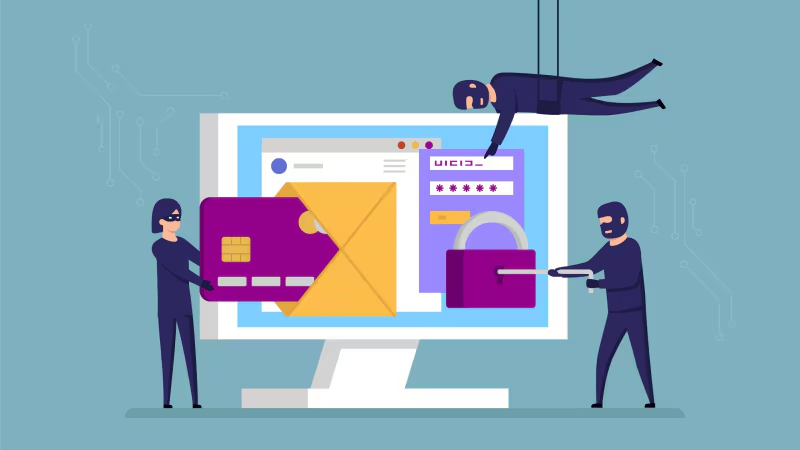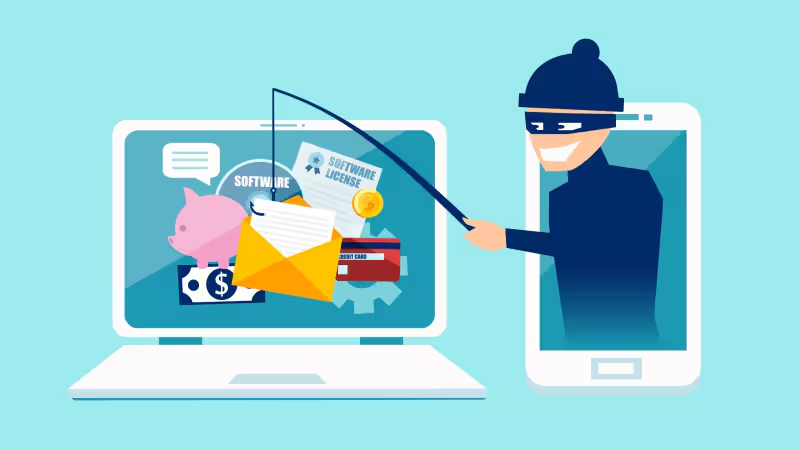In today’s digital age, safeguarding your credit rating and private identification has grown to be extra essential than ever. With increasing reliance on on-line economic systems, the dangers of identity robbery and credit fraud have grown extensively. Protecting your economic well-being requires vigilance, awareness, and proactive measures. This article explores effective techniques to defend your credit rating and private identification from fraud.
Understanding the Importance of Your Credit Score and Identity
Your credit score score reflects your economic trustworthiness and is utilized by creditors, landlords, and even employers to assess your reliability. A compromised credit score score can lead to higher interest charges, denied credit score applications, or misplaced opportunities. Meanwhile, identity theft will have devastating results, from unauthorized transactions to fraudulent loans opened for your call.
By prioritizing the safety of your credit rating and personal records, you shield your monetary balance and prevent lengthy-time period damage.

1. Monitor Your Credit Report Regularly
One of the only approaches to hit upon fraud early is to monitor your credit reports regularly. By law, you are entitled to one free credit file annually from every of the primary credit score bureaus. Checking your file helps you:
- Identify unauthorized money owed or transactions.
- Spot mistakes in your credit score records that might negatively impact your rating.
- Monitor changes for your credit score usage or reputation.
Consider enrolling in a credit score tracking provider for actual-time indicators about any uncommon hobby to your credit score record.
2. Use Strong and Unique Passwords
Your online economic accounts are frequently a goal for fraudsters. Protecting them begins with creating sturdy and precise passwords. Avoid the usage of predictable information like your call, date of delivery, or common terms. Instead, use:
- An aggregate of upper- and lowercase letters, numbers, and logos.
- Passwords which might be as a minimum 12 characters long.
- Password managers to securely store and generate complicated passwords.
Enable two-component authentication (2FA) anyplace viable to feature an extra layer of safety for your debts.
3. Secure Personal Documents
Not all fraud takes place online. Identity thieves regularly make the most physical files like bank statements, credit score card payments, or tax paperwork. To prevent this:
- Shred touchy files earlier than discarding them.
- Store important papers, like Social Security playing cards or passports, in a secure place such as a fireproof safe.
- Opt for electronic statements to minimize paper trails.
Additionally, be careful about sharing personal info, even in face-to-face interactions.
4. Beware of Phishing Scams
Phishing scams are most of the most commonplace strategies used by cybercriminals to thieve private facts. Fraudsters regularly pose as legitimate groups or government businesses to trick you into revealing sensitive information. To defend yourself:
- Verify the source earlier than clicking on links or commencing attachments in emails and texts.
- Avoid sharing non-public or economic records over the telephone until you initiate the call.
- Be cautious of unsolicited messages that create an experience of urgency or fear.
When in doubt, contact the agency directly using authentic contact details.
5. Place Fraud Alerts or Credit Freezes
If you observe that your identification may have been compromised, keep in mind putting a fraud alert or freezing your credit.
- Fraud Alerts: Notify creditors to verify your identification earlier than beginning any new debts for your call. Fraud alerts are unfastened and final for 12 months.
- Credit Freezes: Prevent lenders from having access to your credit score document completely, making it tough for fraudsters to open bills. You can temporarily carry the freeze in case you want to apply for credit.
Both measures are effective in stopping unauthorized use of your credit score.
6. Use Secure Networks and Devices
Online transactions and account management should constantly be conducted over secure networks. Public Wi-Fi is regularly unencrypted, making it easier for hackers to intercept your data. To stay safe:
- Use a Virtual Private Network (VPN) when getting access to public Wi-Fi.
- Keep your gadgets updated with the modern-day security patches.
- Install antivirus software program to hit upon and prevent malware assaults.
Avoid carrying out sensitive transactions on shared or public computer systems.

7. Watch Out for Skimming Devices
Skimming is a way wherein criminals install gadgets on ATMs or card readers to thieve your card statistics. To keep away from falling victim:
- Inspect card readers for signs of tampering earlier than used.
- Cover the keypad whilst coming into your PIN at ATMs or price terminals.
- Use ATMs located in steady and properly-lit regions.
Opt for contactless payments wherein viable, as they’re commonly greater steady than swiping or inserting a card.
8. Keep an Eye on Your Financial Statements
Regularly reviewing your bank and credit card statements can help you spot unauthorized transactions early. Look for small expenses, as fraudsters often take a look at money owed with minor quantities before making large withdrawals. If you be aware suspicious hobby:
- Report it on your economic organization immediately.
- Cancel compromised cards and request replacements.
- Consider filing a police record for further safety.
9. Educate Yourself About Identity Theft Trends
Fraud procedures keep evolving, so staying knowledgeable about the trendy scams and security measures is essential. Resources like government websites, monetary establishments, and customer advocacy corporations regularly provide updates on rising threats.
10. Protect Your Social Security Number (SSN)
Your Social Security Number is a key goal for identity thieves, as it could be used to open debts, report tax returns, or devote different sorts of fraud. Safeguard your SSN with the aid of:
- Only sharing it whilst sincerely important.
- Avoiding sporting your Social Security card on your wallet.
- Be cautious about imparting your SSN over the cell phone or online.
Consider the usage of an Identity Theft Protection Service to monitor the usage of your SSN and warn you of ability misuse.
11. Be Cautious About Sharing Personal Information Online
Social media systems are a treasure trove of records for cybercriminals. Be aware of what you proportion, as apparently harmless info can be used to answer security questions or impersonate you. To decrease dangers:
- Adjust your privacy settings to limit who can view your profile.
- Avoid posting touchy records like your address or cellphone quantity.
- Think two times earlier than participating in online quizzes that ask for non-public info
12. Review and Update Your Credit Utilization
High credit score utilization can harm your credit score and make you a goal for fraudsters. Aim to hold your credit usage ratio under 30% with the aid of:
- Paying off balances in full every month.
- Requesting credit restrictions will increase to lower the utilization ratio.
- Avoiding opening more than one bill unnecessarily, as this can impact your score.
13. Report Fraud Immediately
If you think fraudulent activity, act quickly to decrease the harm. Steps to take encompass:
- Contacting your monetary group to record unauthorized transactions.
- Filing a complaint with the Federal Trade Commission (FTC) or relevant nearby authority.
- Informing the credit score bureaus to flag your credit score record.
The quicker you act, the simpler it is going to be to recover from fraud.
14. Build a Fraud-Proof Financial Future
While no strategy can assure one hundred% protection towards identification theft or credit score fraud, adopting proactive behavior notably reduces your chance. Staying vigilant, tracking your economic money owed, and being careful with personal records let you preserve a sturdy credit score and guard your identification.
By prioritizing those preventive measures, you not only safeguard your finances however also make contributions to a greater steady and resilient financial ecosystem.
Taking the rate of your financial protection is an obligation that will pay off in the end. Protect your credit rating and identity nowadays to revel in peace of mind and a solid financial future.

